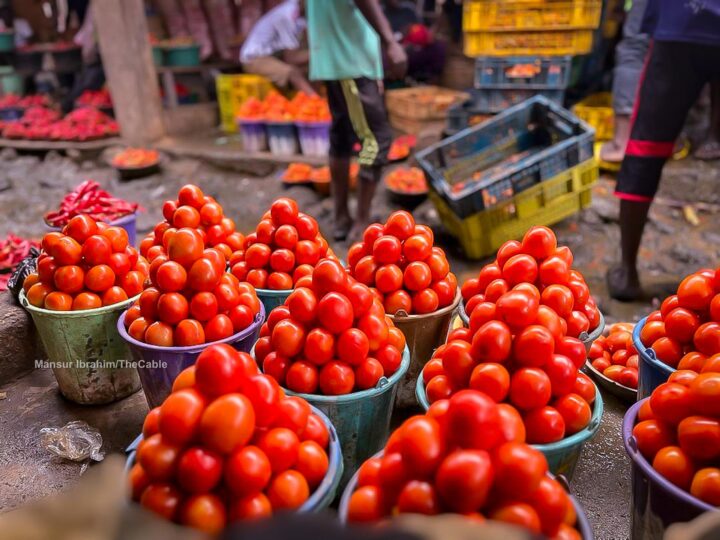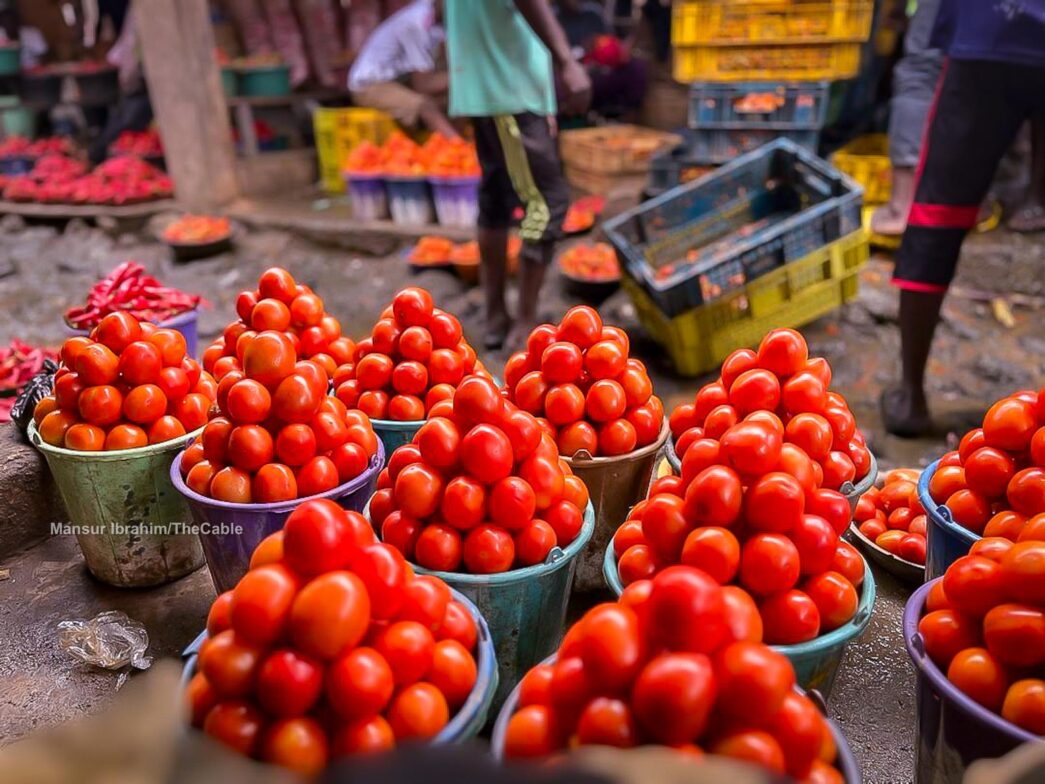Abubakar Kyari, minister of agriculture and food security, says Nigeria has lost over N1.3 billion to the outbreak of Tuta absoluta, a tomato-destroying pest commonly known as tomato ebola, in three states.
Speaking on Wednesday at a capacity-building workshop for financial institutions in Abuja, Kyari said the losses were recorded in Kano, Katsina, and Kaduna states.
He said the outbreak had triggered a sharp increase in the price of tomatoes — with the cost of a 50-kilogram (kg) basket rising from N5,000 to as high as N30,000 — further compounding food inflation and putting pressure on household budgets.
The minister described Tuta absoluta as a fast-spreading invasive pest capable of wiping out entire tomato fields within 48 hours, stressing that the incident exposed the vulnerability of the country’s horticultural systems.
Advertisement
According to Kyari, the crisis underscores the pressing need for effective pest control measures, investment in resilient crop varieties, and stronger support systems for farmers to protect Nigeria’s food supply chains.
“Tomatoes and peppers, essential ingredients in virtually every Nigerian kitchen, serve as baseline commodities for daily cooking,” he said.
“When the prices of these staples spike, they set off a chain reaction that affects the cost of meals across homes, restaurants and food vendors.
Advertisement
“According to the 2024 National Bureau of Statistics (NBS) tomatoes led the food price index with a staggering 320 per cent year-on-year increase, followed by peppers and other produce.
“These spikes disproportionately affect low-income households, underlining the urgent need for more stable production, better storage and accessible finance across the horticulture value chain.”
Kyari described horticulture as the “sleeping giant” of Nigerian agriculture and called for urgent efforts to unlock its full potential through sustainable financing.
He explained that horticulture — which includes the cultivation of fruits, vegetables, herbs, spices and ornamentals — holds far-reaching benefits beyond food production.
Advertisement
The minister said it is a dynamic engine for rural transformation, job creation, improved nutrition and trade diversification.
”With increasing urbanisation and growing awareness of healthy diets, consumer demand for fresh and diverse produce is rising rapidly. Horticulture is well-positioned to meet this demand,” he added.
‘HORTICULTURE OFFERS HIGHER VALUE’
Despite the challenges in the horticulture sector, Kyari said it remains one of the most promising frontiers for agricultural transformation, offering higher value per hectare, shorter production cycles, and multiple annual harvests ideal for smallholder commercialisation.
Advertisement
He added that the sector offers high employment potential throughout the year, particularly for women and young people, and is closely connected to processing, packaging, retail, and export markets.
“The sector also offers climate resilience through protected cultivation and irrigation systems, urban food access through peri-urban farming and logistics integration,” he said.
Advertisement
“Horticulture is a high-impact, high-return opportunity sitting at the intersection of agriculture, health, industry, and trade.”
The minister outlined the sector’s major contributions to Nigeria’s agricultural transformation, including the diversification of production and income sources, improved food and nutrition security, and job creation with youth involvement.
Advertisement
Kyari also highlighted its role in reducing import dependence, boosting export potential, enhancing climate resilience, and strengthening access to urban markets.
“Crops like tomatoes, pineapples, cucumbers, citrus and plantains have huge domestic demand and are increasingly becoming important commercial crops,” Kyari said.
Advertisement
“On food and nutrition security, horticultural crops are rich sources of vitamins A, C, iron, zinc, and folate nutrients vital for child development, maternal health and disease prevention.
“Scaling up their production and affordability is key to ending malnutrition in all its forms.”
Kyari urged financial institutions to better understand the horticulture value chain — from seed to shelf — and to move beyond generic lending and develop tailored products that aligned with the specific stages of the value chain.
The minister also urged them to develop fit-for-purpose financial products, including seasonal credit lines, equipment leasing, invoice discounting, and trade financing.











